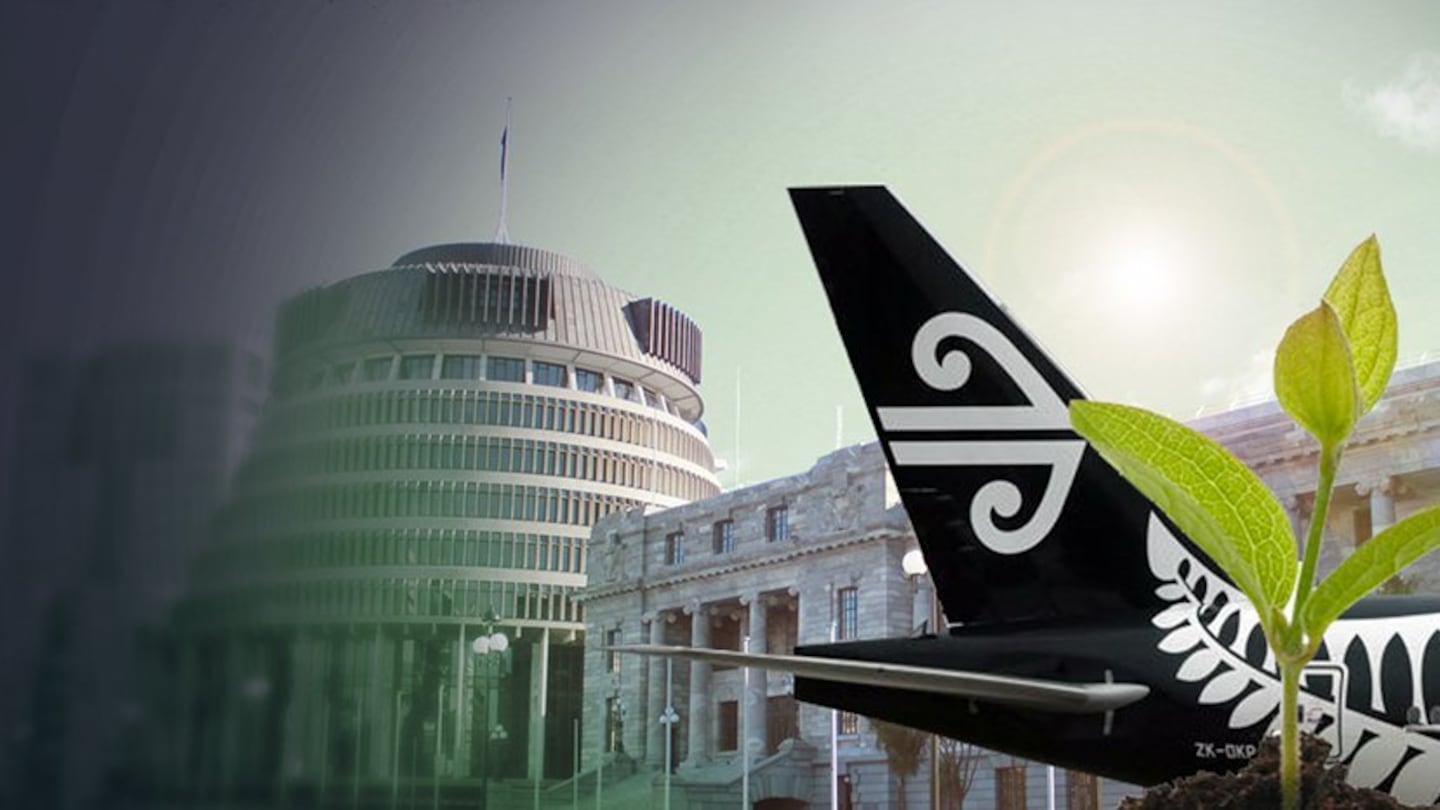The government is co-funding two major studies with Air NZ, to create more sustainable and eco-friendly forms of aviation fuel.
This comes on the back of major climate change destruction throughout the country, beginning with the Auckland floods in January and the impacts of Cyclone Gabrielle through North Island regions.
Air New Zealand wants to change the narrative of how its planes travel the skies.
The co-chair of the leadership group fronting the studies, Laurissa Cooney, says it’s plain to see the effects of carbon emissions into the atmosphere.
“It's pretty scary what we're looking into. You can't sugarcoat this. Climate change is here, and biodiversity loss in the stats is pretty significant. And when you think about the extreme weather events we've been exposed to in the past six months, the scenario that we've drafted for climate change only shows those increasing.”
This morning Tourism Minister Peeni Henare, Air NZ chief sustainability officer Kiri Hannifin and a group of sustainable aviation fuel experts gathered to discuss how they can make flying more eco-friendly.
Fuel from natural resources
“At the end of the day, the biggest vision that I had and that I heard come through as well Is that we as people will have a deeper connection with our environment and nature,” Cooney says.
Aviation fossil fuels contribute to 2-3% of carbon emissions worldwide, so the chief sustainability officer is excited to see the benefits of these studies.
“What's magic about sustainable aviation fuel, is that its physical characteristics are pretty much identical to jet fuel. It looks the same, it smells the same, and it operates the same. And what that means is at Air New Zealand we can drop that into our fleet without modifying it,” Hannifin says.
The plan looks at creating sustainable aviation fuel out of natural resources, forestry slash, rubbish and cooking oil. However, troubles like whether it is sustainable to produce here in Aotearoa still worry Hannifin.
“But we can only produce it in our country if it's sustainable, and if we have enough feedstock or products to make it from and it also of course needs to be sustainable. We don't want to cause any more harm to our environment.”
Tourism Minister Peeni Henare says the main aspects that draw people to Aotearoa are nature and culture. He says what he supports with this plan is the survival of the environment.




